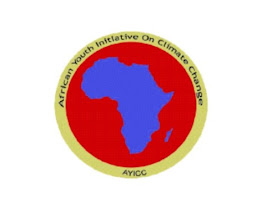Report: Multi Sectoral Consultative Dialogue on What is Next for the Climate Change Bill, 7th February 2013
Introduction
As the title suggests, this meeting was
held to chart the way forward on what to do with the Climate Change Bill, which
the President declined to assent to. Representatives for stakeholders
interested in this Bill were also present. The main agenda
was to understand what really led to the rejection of this crucial Bill by the
President, and what the next steps to be taken were.
What really happened?
Hon. Wilbur
Ottichillo, MP for Emuhaya, was best placed to explain why the Bill was
rejected. Visibly agitated, the MP took the audience through the detailed
process it took to get the Bill passed y Parliament. He was also very blunt
when it came to pointing out what may have been the major reason why the
President rejected the Bill. It is important to note that the President’s
reason for declining to assent to the Bill was due to lack of participation. It
was noted that the Kenya Climate Change Working Group (KCCWG) together with
other stakeholders, had held participatory consultative meetings all over the
country for 21/2 years, and every stakeholder had been involved.
Also, the MP
pointed out to the fact that the initial name of the Bill was the Climate
Change Authority Bill. He stated that there had been concerns in the Ministry
of Environment and Natural Resources that this Bill would establish a Climate
Change Authority that would be autonomous, much like a Parastatal; this,
however, was not the case. This was manifested through the recommendation to
have the initial name of the Bill changed from the Climate Change Authority
Bill to the Climate Change Bill.
Legal Opinion
Since there were
quite a number of legal issues to be considered, the Executive Director of the
International Committee of Jurists, Mr. George Kegoro, took the audience
through the available legal options.
One of the most
outstanding issues was the fact that the President had rejected the Bill on
grounds on procedure – lack of public participation – rather than content, as
Article 115 of the Constitution of Kenya directs. Based on this premise, the
following suggestions were put forth:
·
To seek a legal interpretation
and opinion from the Attorney General
·
To restart the process of
passing the Bill in Parliament since it was now no longer valid
·
To inform the public on why the
Bill was rejected and the way forward, before tabling it in Parliament
Which should come first? The chicken (climate change
bill) or the egg (climate policy)?
The Ministry of
Environment and Natural Resources, through its representative, acknowledged
that it was involved in the entire process. The Ministry also highlighted the
fact that it had just completed working on the Kenya Climate Action Plan and
was ready to implement it. Also, the Ministry hinted that it favoured a climate
policy instead of a comprehensive legislation on the same by stating that it
was important first to have a climate policy in place before working on a
comprehensive climate change. This was viewed to be against the mood of the
gathered stakeholders, since it was akin to throwing away three years of work
that went into coming up with the climate change bill.
Opinions from the floor
Some important
points came to the fore from the audience during the plenary session:
·
The subsequent Climate Change
Bill should be combed trough to make sure that it adheres to all set standards
so that it passes through Parliament without hiccups
·
There was a call for the
stakeholders involved to come up with a technical Steering Committee to work on
the way forward for this Bill
·
There was also an opinion that
the Bill should be aligned with County government policies so as to make sure that
it is relevant
·
It was laos noted that a
Ministry will not be able to introduce a Bill in the new Bi-cameral parliament
·
There was consensus that
efforts to have a Climate Change Bill should not wane, but should be renewed
and strengthened.
Youth Perspective
It would be
important to have a youth focal point in the Technical Steering Committee that
is working on the way forward for the Climate Change Bill; lobbying to this
effect is ongoing.
Conclusion
It is important
that as youth, we should contribute to this process in a greater manner than
before, since climate change is a phenomenon that will affect our and future
generations the most.
Compiled by:
Kennedy Liti Mbeva

Comments
Post a Comment